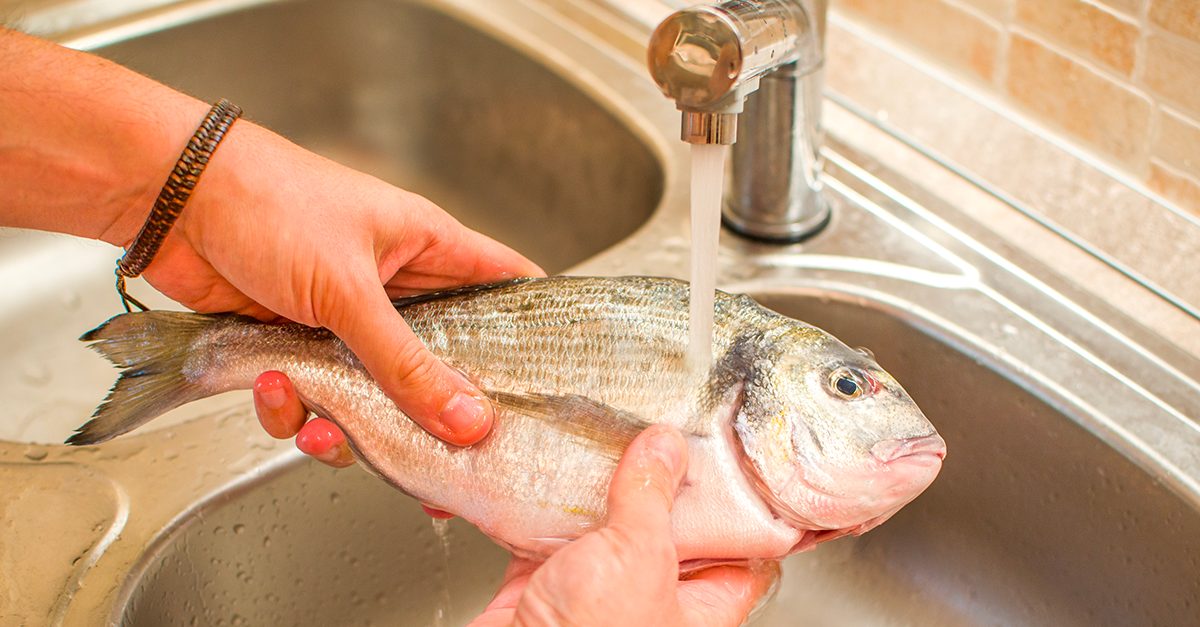Why You Should Never Wash Raw Fish Before Cooking It
Washing raw fish before cooking can spread bacteria, affect texture, and remove beneficial compounds. It's safer and more flavorful to cook fish without rinsing. Thawing frozen fish in water is okay, but direct washing should be avoided, including salmon, to preserve taste and ensure safety. Cook to proper temperatures to kill bacteria.
;Resize,width=742;)
In the vast and intricate tapestry of culinary practices, the debate on whether to wash raw fish before cooking it has swum through kitchens and dining tables for generations. Instinct might push us towards rinsing off our seafood, believing it to be a step towards cleanliness and safety. However, modern food safety guidelines and culinary experts suggest we might be better off leaving that fish untouched by tap water before it hits the pan, oven, or grill. Let's dive into the reasons why washing raw fish is a practice best retired, and how specific cases like frozen fish or salmon fit into this aquatic conundrum.
The Reasons Against Washing Raw Fish
1. Spreading of Bacteria
Contrary to the belief that washing raw fish removes bacteria, the act of rinsing it under tap water can actually spread pathogens like Salmonella and E. coli onto kitchen surfaces, utensils, and other foods through water splashes. Cooking fish to the proper temperature is sufficient to kill bacteria, making the washing step unnecessary and potentially hazardous.
2. Deterioration of Texture
Fresh fish comes with a delicate texture and a flavor profile that water can easily compromise. Washing fish can wash away some of its natural, flavorful juices, leading to a less tasty outcome. Furthermore, the exposure to water can make the fish's surface excessively wet, hindering the ability to achieve a good sear in the pan, resulting in a less appealing texture.

3. Removal of Beneficial Compounds
Some fish, particularly those rich in omega-3 fatty acids, carry beneficial surface bacteria and enzymes that contribute to their flavor and health benefits. Washing these away can reduce the nutritional value and taste of the fish.
Can You Wash Frozen Fish Before Cooking It?
When it comes to frozen fish, the guidelines offer a bit more leniency. Thawing frozen fish under cold water is an accepted practice, primarily aimed at reducing thawing time rather than washing the fish. It's essential to ensure that the fish is in a leak-proof package to avoid waterlogging and texture deterioration. The key here is to use the water as a medium for thawing rather than for cleansing.
Should You Rinse Salmon Before Cooking It?
Salmon, a favorite among seafood lovers for its rich taste and nutritional benefits, often prompts the question of whether it requires rinsing. Following the general advice against washing raw fish, salmon too should not be washed before cooking. The concern of removing natural flavors and risking bacterial spread applies to salmon as it does to other types of fish. Ensuring it's cooked to the appropriate temperature will take care of any safety concerns, leaving its taste and texture uncompromised.
;Resize,width=767;)
;Resize,width=712;)
;Resize,width=712;)
;Resize,width=712;)
